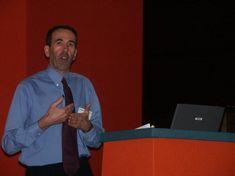
Chris Plackett of Farm Energy Centre told delegates at Tomato Conference 2003 that the tomato industry alone would lose around £1m a year in rebate if targets set by the Horticulture Voluntary Agreement are not met.
The agreement, administered by the NFU and Defra, "is not universally popular", said Plackett. He added: "The target for horticulture is a 15 per cent improvement in energy efficiency by 2010. The way the NFU has chosen to measure this - the amount of energy used per square metre of greenhouse production area - because it gives them a simple reporting structure."
The measurement method has not met with widespread approval, and this in part explains a drop off in the number of growers subscribing to the scheme. In 2001, the first year, 530 UK producers subscribed. In 2002, this had decreased by more than 50 per cent, to 258. "This is perilously close to the minimu amount of growers needed to make the scheme viable," said Plackett. "Data shows that the sector has met its targets to date, but that dat is pretty flimsy - it has big holes and deficiencies in it."
The NFU is re-evaluating the scheme and could go down the producers' generally preferred route of measurement - kilowatt hours per square metre. It is also looking to simplify the data collection process. "Producers need to back the NFU work whether they like it or not," said Plackett. "More commitment is needed from more people, firstly to save energy, but also to provide more reliable data. Compliance is key to there being any kind of CCL rebate after 2006 - it is all about demonstrating to Defra that the industry is taking it [energy efficiency] seriously."



